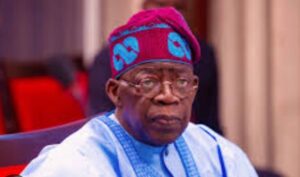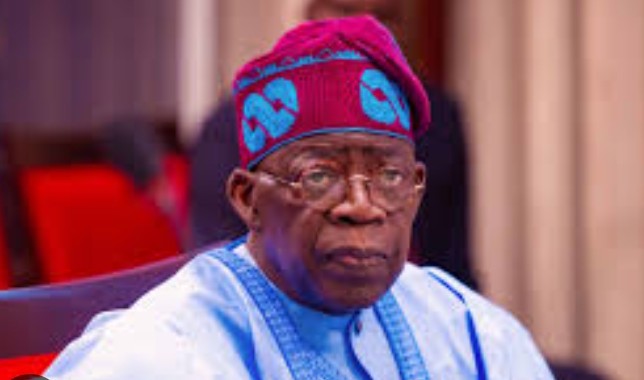

By Chief Niyi Akinsiju.

President Ahmed Bola Tinubu.
We have placed the decision taken by President Bola Tinubu on the long-drawn dispute over the controversial Oil Prospecting Licence (OPL) 245 under the Analyst’s lens. We conclude that the President’s resort to statesmanship rather than brinkmanship is a welcome intervention in government-corporate entanglements.
This does not vitiate the dispositions of past administrations over an oilfield that holds a total estimated value of 9 billion barrels of crude. This is about a quarter of Nigeria’s crude potentials. What is, however, commendable about the President’s current intervention is his realization that no matter how long drawn a matter may be, there must be a closure. And in this matter, especially, the closure must serve the national interest.
Like many Nigerians, we are familiar with the history of its controversial sale in August 1998 on the watch of the late Head of State, General Sani Abacha, to Malabu Oil and Gas, a company owned by the then former Petroleum Resources Minister, Dan Etete.
Since that sale, the transaction has remained the subject of various litigations starting with the administration of former President Olusegun Obasanjo, in 2001, who terminated the sale and, in turn, handed it to Shell without a public bid.
This, rather than resolve the matter, triggered a deluge of criticism and calls to redeem the transaction that now extended to Malabu on one hand, and Shell and the Italian firm, ENI on the other hand when the President Goodluck Jonathan administration facilitated a $1.3billion settlement among the different claimants to the ownership of the oil fields. The matter remained unresolved from the sovereign point of view upon which the administration of President Muhammadu Buhari initiated a legal challenge against the sale based on the suspicion of corruption in the $1.1bn settlement by Shell and ENI which was facilitated by the Nigerian Government.
We, however, observed that beginning in 2023, there had been moves to terminate the case in court on the basis of an advice by former Attorney General of the Federation, Abubakar Malami, to Buhari citing low chances of success and a potential loss of economic benefits from the prolific oil block.
Our findings, indeed, showed that ENI, Shell and some of their former and current senior staff were acquitted last year by a court in Italy, where they were accused of been aware that part of the $1.1 billion paid to acquire OPL 245 would be distributed as bribe to officials of the Jonathan administration.
The country lost all other cases it filed in other foreign jurisdictions over the matter and it is also true that earlier this year, the Economic and Financial Crimes Commission (EFCC) conceded at a Federal High Court in Abuja that it had no evidence to secure the conviction of key persons and companies including former Attorney General Mohammed Adoke over the Malabu saga after spending huge resources on law suits.
So it is against this backdrop that we welcome the President’s approval of a negotiated settlement in order to pave way for oil prospecting in the lucrative oil block that has been described as one of Africa’s juiciest but which had been idle for nearly 30 years inspite of holding billions of barrels of crude oil.
This will go a long way in boosting the country’s daily crude and gas production output, meaning more revenue at a time the country has, for years, been struggling to meet its OPEC quota.
It is our considered opinion that a negotiated settlement is a far better option than continuing with long drawn legal disputes which the country spent huge resources on without success.
What the President has approved is cost effective, and the benefits of crude and associated gas estimated at 9 billion barrels is massive in a country yearning for more foreign investors.
The earlier Nigeria begins to exploit OPL 245, the better in view of the country’s commitment to Net zero emissions based on a 2050 Global Energy Transition Plan timeline.
It is in this regard that we advise President Tinubu to speed up the process of issuing an Oil Mining Licence (OML) to either or both of the two international oil companies, which have shown interest in further development of the block or any other prospective investor.
We further urge the President to take concrete steps to ensure that licensing processes for oil blocks are done in a manner devoid of controversy like that of OPL 245.
*Signed*
*Niyi Akinsiju*
*Chairman*
Feb. 4, 2024
[2/4, 2:00 PM] Mohammed Momoh: *CBN Battles to Take Control of The Forex Market: Our Position*
We have observed the raft of policies’ issuance by the Central Bank of Nigeria (CBN) in its bid to facilitate harmony and stability in the nation’s foreign exchange market. One of the policies addresses the Net Open Positions of Nigeria’s Deposit Banks. The policy relates directly to concerns over the quantum of foreign currencies in the vaults and, or books of the banks and the holding timelines.
The prudential guidelines as issued by the CBN, unveils the gaming of the foreign exchange market by Nigeria money deposit banks who hoard forex which, they had either borrowed from foreign jurisdictions or raised locally on long term basis, and profiteering on the forex holdings by refusing their customers’ access to the forex while bidding the Naira to depreciate and exploit the market, thereafter, by offloading the forex into the market when the Naira declines to their target percentage depreciation.
On this count, we applaud the directive of the CBN to the banks to immediately sell off to zero level, the foreign currencies they are holding on the long term and to reduce their short term holding by 20 per cent of shareholders fund, within 48 hours. It is estimated that between $6 – $7 Billion is kept by banks in Long Positions either in cash or locked up in FX swaps deals. This, truly captures the CBN’s capacity for regulatory oversight.
An adjunct to the Net Open Position directive is the removal of allowable limit of exchange rates quoted by International Money Transfers Operators. This directive simply obliges International Money Transfers Operators to undertake to transfer forex to Nigeria at prevailing rate rather than the former policy of undertaking to transfer forex at the preceding day’s closing rate with a -2.5% or +2.5% charge.
This constricts possible market reflection on the rate and, thus, was a disincentive to channeling Diaspora funds to the Nigerian market. The new policy translates to an incentive to IMTOs to redirect forex to the official market rather the hitherto practice of diversion to the parallel/black market.
This will, ultimately, rechannel more Diaspora funds to the Nigeria forex market with possible enhancement of forex liquidity which will ameliorate demand pressure with subsequent appreciation of the local Naira currency.
As a corollary to effecting this policy, the CBN has banned banks and financial technology companies (fintechs) from international money transfer services. By restricting banks and fintechs from international money transfer services, the CBN is also strategically manoeuvring to fortify the currency and stabilise the forex market.
Instructively, following the these CBN’s directives to banks, the volume of dollar transactions by willing buyers and willing sellers as determined by the new directives, consisting of banks and exporters and investors, reportedly increased by 85.36 per cent in the Nigerian Autonomous Foreign Exchange Market, while the daily FX market turnover increased to $134.07million last Wednesday from $72.33million last Tuesday at the official market.
Though if these banks sell their holding positions at prevailing rate on the cue of the Net Open Position directive, they would still be making a killing, however, we are not under the illusion that these policies will immediately change the face of Forex transactions in the country and drive influx of liquidity into the market as anticipated. This is because many banks can procedurally undercut the effectiveness of the policy because these dollar assets are not in cash.
The banks can approach the CBN to grant a forbearance and will subvert the process by excuses such as negotiating the conversion of foreign currency loans to naira loans.
Even at that, in our consideration, this bold step reflects the CBN’s unwavering commitment to safeguarding the financial system and ensuring economic stability in Nigeria. We are strongly persuaded that if the apex bank continue this proactive oversight trajectory it would eventually take control of the present volatility being witnessed in the market.
Chief Niyi Akinsiju is the
Chairman, Independent Media and Policy Initiative (IMPI}.



